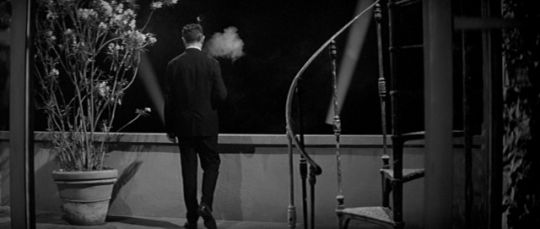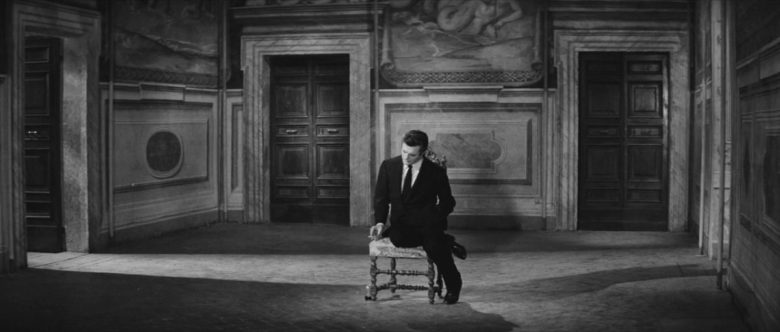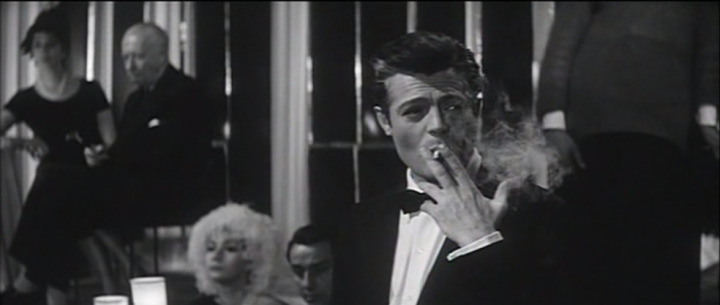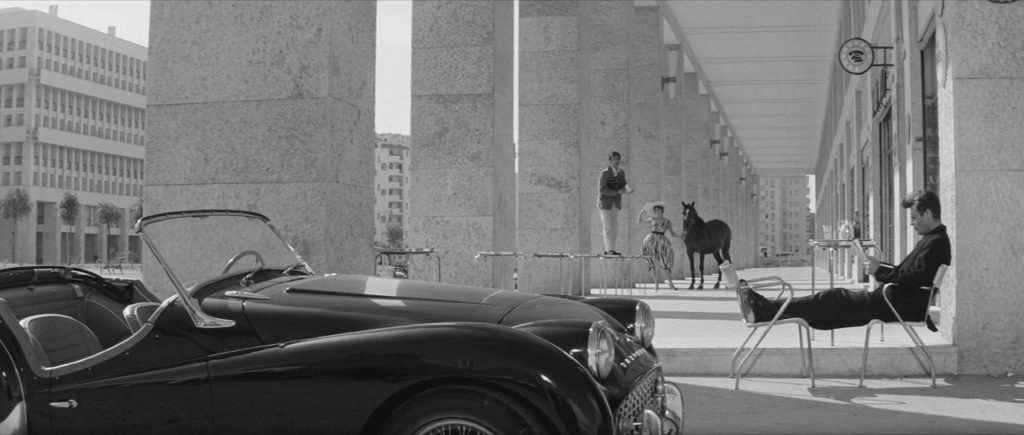Take a photo of a barcode or cover
No tears for the creatures of the night

How did old Cavafy put it? The city will come with you, he said, to somewhere else, he said, there is no hope, there is no ship, there is no way for you, because by throwing your life away in this insignificant corner, you have thrown it away on the whole earth.(*)
Leo Garazza, a feckless 30 year old man from Milan gets shipwrecked in the eternal city, living his bohemian life from hand-to-mouth, lost and drifting through the city through various jobs, bars, scrounging food and drink from more wealthy friends, having a half-hearted and stormy affair with Arianna, a young woman ever on the verge of a nervous breakdown. Last Summer in the city is told with a heedless flair, replete with literary allusions (particularly to writers who like Leo also had issues with the bottle (Lowry, Hemingway, Dylan Thomas); Proust and madeleines are a leitmotif as well) – and with lyrical reflections for instance when Leo perches on the piazza Navona In the middle of the deserted square, the fountain shone against a deep blue background. Magnificent, the square at that time, as if aware of its own beauty and pointless existence.

First published in 1973 and now hailed as a classic of Italian literature, Last Summer in the City, struck me as fairly banal and slightly soporific despite its alluringly light (even misleadingly sprightly), ironic and wry tone and its cinematic qualities (reminding me of Fellini’s La dolce Vita). Admittedly, Calligarich’s beautifully crafted sentences flow beautifully and his depiction of the variegated sides of (night) life in Rome in the 70s – ranging from dark and shady to bright and seductive – is fascinating, but apart from the old Graziano, none of the characters who stroll through this novel piqued my curiosity –a few of them having an attitude toward life echoing the careless superficiality and amorality of Daisy and Tom Buchanan in Fitzgerald’s The Great Gatsby so patently that Calligarich seems to have them abducted from New York and transplanted to Rome: That is how they were. They took everything lightly. They were light-hearted and self-assured. They would crush people with a remark and happily move on to the first easy chair within reach..

Rome might be the most intriguing character featuring in the book - indomitable, indifferent and unwelcoming; the way the city affects the protagonist is the central subject of the novel (or as Natalia Ginzburg worded it in her immaculate lucidity: 'The true quality of this novel is the way it enlightens, with a desperate clarity, a relationship between a man and a city--that is, between crowd and loneliness.').

Even if Leo Garazza’s struggles and disquiet left me quite distant, the closing scene brought a lump to my throat, poignant it was in its scenic evocation of despair, echoing Alberto Moravia’s [b:Contempt|67141|Contempt|Alberto Moravia|https://i.gr-assets.com/images/S/compressed.photo.goodreads.com/books/1617039834l/67141._SY75_.jpg|2257072] and – again – the finale of The Great Gatsby.
(*I machine-translated the quotes from the Dutch edition, an English edition of Last Summer in the City will be published in August).

How did old Cavafy put it? The city will come with you, he said, to somewhere else, he said, there is no hope, there is no ship, there is no way for you, because by throwing your life away in this insignificant corner, you have thrown it away on the whole earth.(*)
Leo Garazza, a feckless 30 year old man from Milan gets shipwrecked in the eternal city, living his bohemian life from hand-to-mouth, lost and drifting through the city through various jobs, bars, scrounging food and drink from more wealthy friends, having a half-hearted and stormy affair with Arianna, a young woman ever on the verge of a nervous breakdown. Last Summer in the city is told with a heedless flair, replete with literary allusions (particularly to writers who like Leo also had issues with the bottle (Lowry, Hemingway, Dylan Thomas); Proust and madeleines are a leitmotif as well) – and with lyrical reflections for instance when Leo perches on the piazza Navona In the middle of the deserted square, the fountain shone against a deep blue background. Magnificent, the square at that time, as if aware of its own beauty and pointless existence.

First published in 1973 and now hailed as a classic of Italian literature, Last Summer in the City, struck me as fairly banal and slightly soporific despite its alluringly light (even misleadingly sprightly), ironic and wry tone and its cinematic qualities (reminding me of Fellini’s La dolce Vita). Admittedly, Calligarich’s beautifully crafted sentences flow beautifully and his depiction of the variegated sides of (night) life in Rome in the 70s – ranging from dark and shady to bright and seductive – is fascinating, but apart from the old Graziano, none of the characters who stroll through this novel piqued my curiosity –a few of them having an attitude toward life echoing the careless superficiality and amorality of Daisy and Tom Buchanan in Fitzgerald’s The Great Gatsby so patently that Calligarich seems to have them abducted from New York and transplanted to Rome: That is how they were. They took everything lightly. They were light-hearted and self-assured. They would crush people with a remark and happily move on to the first easy chair within reach..

Rome might be the most intriguing character featuring in the book - indomitable, indifferent and unwelcoming; the way the city affects the protagonist is the central subject of the novel (or as Natalia Ginzburg worded it in her immaculate lucidity: 'The true quality of this novel is the way it enlightens, with a desperate clarity, a relationship between a man and a city--that is, between crowd and loneliness.').

Even if Leo Garazza’s struggles and disquiet left me quite distant, the closing scene brought a lump to my throat, poignant it was in its scenic evocation of despair, echoing Alberto Moravia’s [b:Contempt|67141|Contempt|Alberto Moravia|https://i.gr-assets.com/images/S/compressed.photo.goodreads.com/books/1617039834l/67141._SY75_.jpg|2257072] and – again – the finale of The Great Gatsby.
(*I machine-translated the quotes from the Dutch edition, an English edition of Last Summer in the City will be published in August).
Indulgent jibber jabber bla blah blah ooooh isn’t life just funny! Get over it mate
dark
emotional
funny
reflective
sad
slow-paced
Plot or Character Driven:
Character
Strong character development:
Complicated
Loveable characters:
Complicated
Diverse cast of characters:
No
Flaws of characters a main focus:
Yes
dark
emotional
funny
reflective
sad
medium-paced
Flaws of characters a main focus:
Yes
"There was a different tone to her voice, but I recognized it. I would have recognized it among a thousand voices, after a thousand years, in whatever world I found myself."
reflective
slow-paced
Plot or Character Driven:
Character
Strong character development:
No
Loveable characters:
No
Diverse cast of characters:
No
Flaws of characters a main focus:
Yes
emotional
sad
medium-paced
Plot or Character Driven:
Character
Strong character development:
No
Loveable characters:
No
Diverse cast of characters:
No
Flaws of characters a main focus:
Yes
dark
mysterious
reflective
sad
fast-paced
reflective
relaxing
slow-paced
dark
emotional
reflective
sad
medium-paced
Plot or Character Driven:
Character
Strong character development:
No
Loveable characters:
Complicated
Diverse cast of characters:
No
Flaws of characters a main focus:
Yes
Graphic: Suicidal thoughts, Suicide, Suicide attempt
challenging
dark
emotional
slow-paced
Plot or Character Driven:
Character
Strong character development:
Complicated
Loveable characters:
Complicated
Diverse cast of characters:
No
Flaws of characters a main focus:
Complicated






